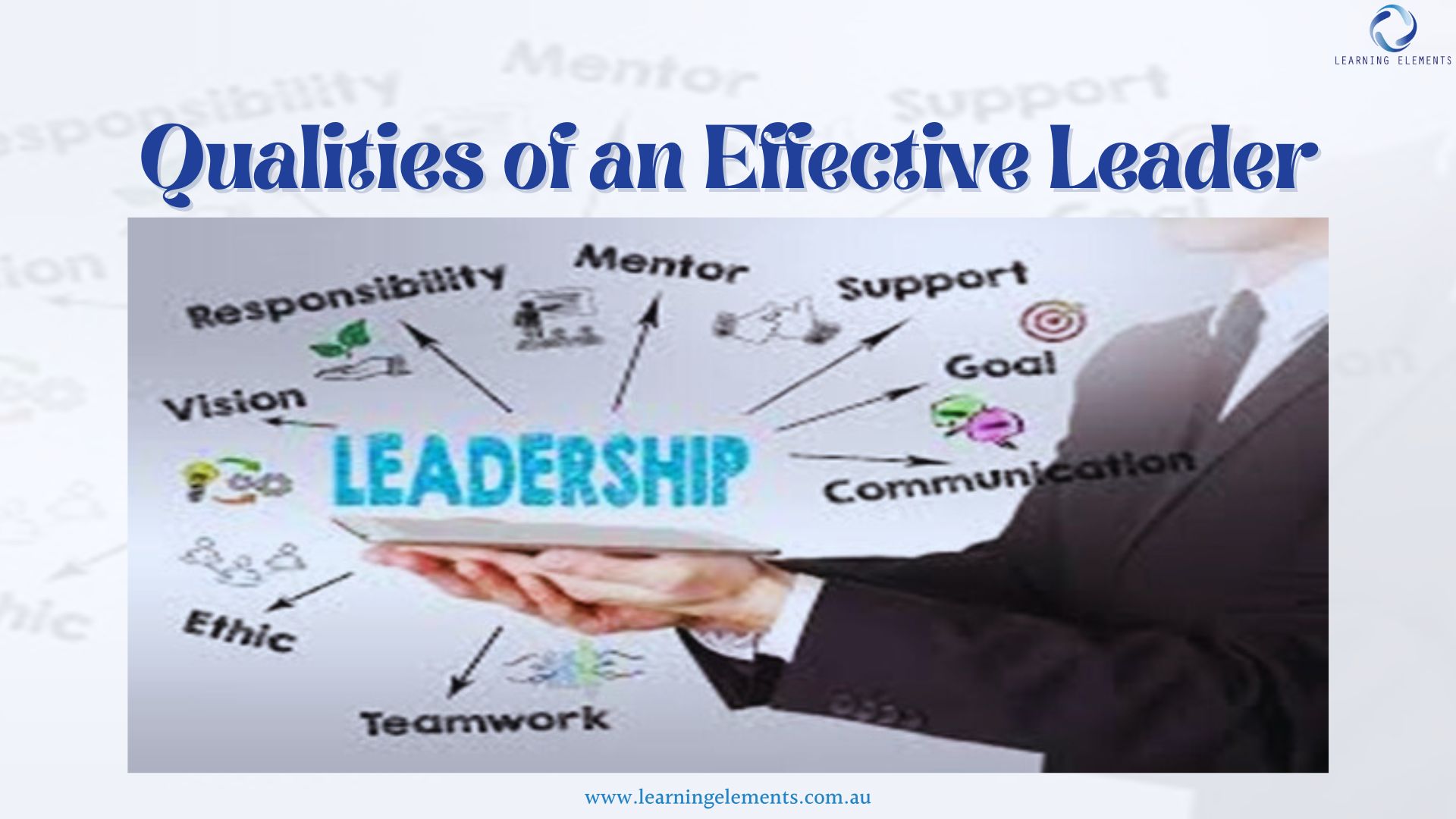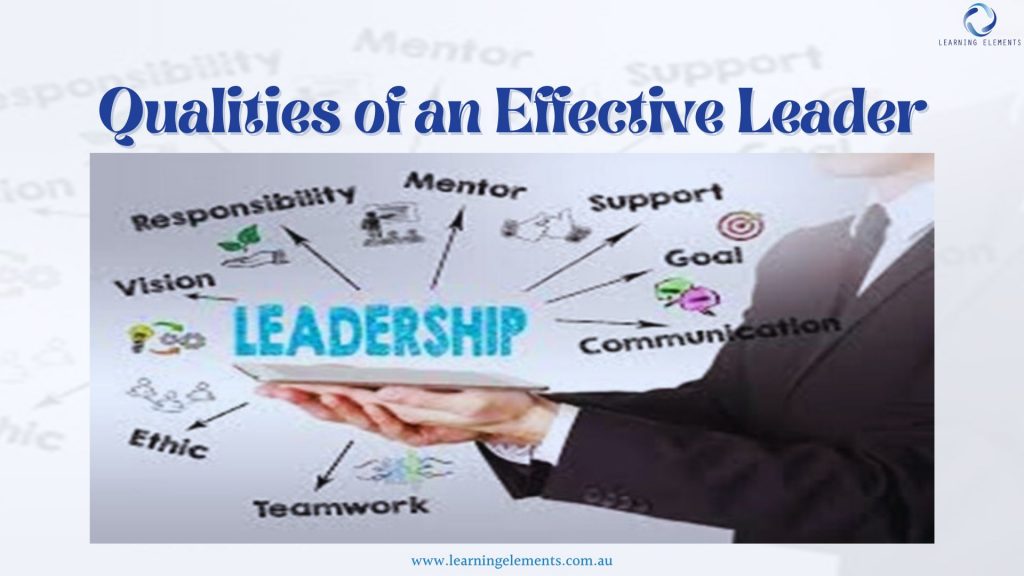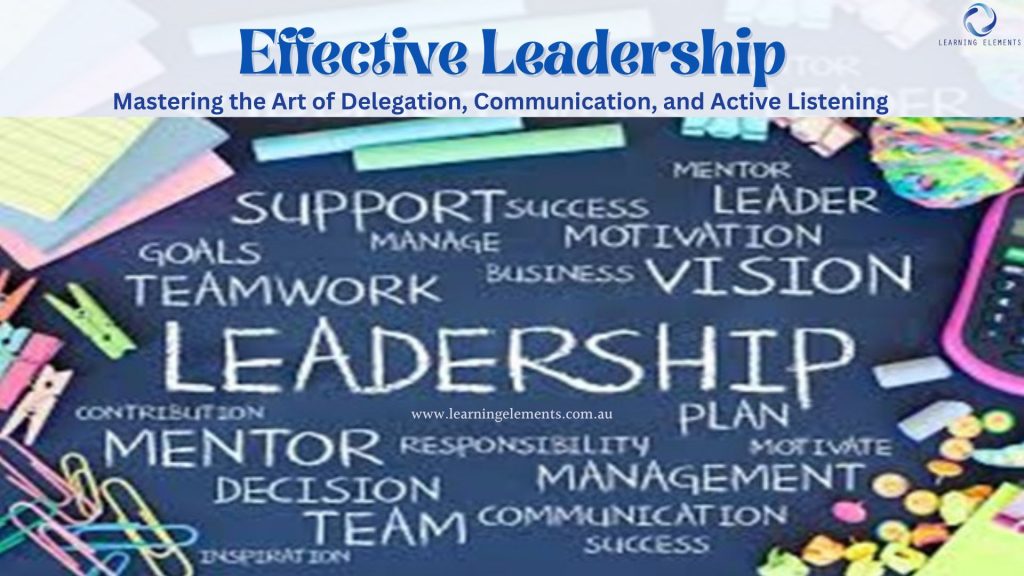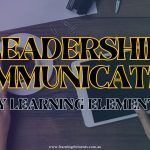Qualities of an Effective Leader: Mastering the Art of Delegation, Communication, and Active Listening
An effective leader provides guidance, inspiration, and leadership while exhibiting courage, passion, confidence, commitment, and ambition. They develop their employees’ abilities and form teams dedicated to attaining goals. While “management” and “leadership” are often used interchangeably, true leadership extends beyond organisational hierarchies and conventional traits. Reflecting on the various leadership philosophies you have encountered can provide valuable insights and broaden your understanding of the qualities of an effective leader. It is worth noting, however, that while leadership philosophies may vary, most successful leaders still possess a standard set of effective leadership traits.
Effective leadership is pivotal in driving teams toward success in today’s rapidly changing and competitive world. A skilled leader possesses qualities that empower them to navigate challenges, inspire their teams, and foster a culture of growth. This article explores key qualities of an effective leader, such as active listening, effective communication, vision sharing, and the ability to inspire and motivate others. These leaders understand the importance of delegation, accountability and dependability, strong decision-making, and recognising achievements.
When these qualities are combined, effective leaders create a motivating vision, inspire and motivate individuals, oversee its execution, build cohesive teams, and foster positive and productive work environments. Anyone aspiring to lead can develop and demonstrate these leadership skills because they are not exclusive to particular roles or positions. Understanding and honing these qualities contributes to the success of individuals, teams, and organisations, driving them toward their shared objectives.
The Importance of Mastering Delegation, Communication, and Active Listening: The Key to Effective Leadership
Effective leaders understand the importance of mastering delegation, communication, and active listening. By empowering others through effective delegation, inspiring and motivating through clear communication, and fostering collaboration through active listening, leaders create a thriving work environment that maximises productivity and drives success. Developing and honing these essential qualities is crucial for effective leadership.
Qualities of an Effective Leader
Several qualities of an effective leader are innate and universal, regardless of the situation. These are key attributes possessed by every effective leader:
Vision Sharing: Inspiring Commitment and Alignment
A compelling vision is about having one and effectively sharing and inspiring others. Effective leaders possess a clear vision and communicate it passionately, ensuring team members understand their contribution to broader goals. They act as positive yet grounded presences, supporting the team’s retention of goals, motivation, and engagement. Leaders motivate others to follow in their footsteps by pursuing their vision with determination and persistence. Sharing your vision with enthusiasm and clarity allows others to align their efforts and contribute to the realisation of shared objectives.
Delegation: Empowering Others and Amplifying Success
Delegation is a vital aspect of effective leadership that involves entrusting tasks and responsibilities to capable team members. By delegating effectively, leaders can leverage their team members’ diverse strengths and skills, fostering personal growth and accelerating overall productivity. Delegation requires trust and an acceptance of the possibility of failure. Leaders establish guidelines and communicate clearly to ensure tasks are carried out effectively. They also provide opportunities for growth and development, allowing team members to learn from their experiences and regain confidence when expectations are not met.
Successful delegation entails identifying the strengths of team members and assigning tasks accordingly. It also involves empowering autonomy, allowing team members to take ownership of their responsibilities and make decisions within their assigned tasks.
To ensure successful delegation:
- Identify team members’ unique strengths and expertise to assign tasks accordingly, maximising efficiency and engagement.
- Communicate clear objectives, expectations, and deadlines, providing detailed instructions and addressing any questions or concerns.
- Empower autonomy and decision-making authority within assigned tasks, allowing team members to take ownership, build confidence, and foster innovation.
Inspiration and Motivation: Igniting the Spark Within
Effective leaders possess the ability to inspire, motivate, and passionately engage their team members. By dedicating time to understand the individuals they manage, leaders can identify their unique talents, needs, and priorities. It is important to consistently remind them of the significance of their work and foster their growth by setting challenging yet rewarding objectives. Sharing and inspiring others with your vision is as crucial as having one yourself. As a leader, maintaining a positive yet grounded presence within the organisation supports team members in retaining their goals, staying motivated, and actively engaged in their work.
By fostering a culture of inspiration and motivation, leaders can:
- Lead by example, demonstrating dedication, passion, and a strong work ethic to inspire commitment and strive for excellence.
- Establish clear and challenging but attainable goals, involving team members in the goal-setting process to foster a shared vision and commitment.
- Celebrate achievements and recognise individual and team contributions, enhancing motivation and fostering a positive work environment. Leaders boost morale and foster continuous growth by acknowledging and rewarding exceptional performance.
Active Listening: Fostering Engagement
Active listening plays a crucial role in effective leadership. A leader needs to be aware of the two aspects of listening. Taking the time to listen to others is the first step in developing listening skills. It includes hearing out any complaints or worries that staff members may have and getting their feedback on any changes to the workplace or conflicts. Second, as leaders listen, they must show that they comprehend what the speaker is saying. It entails figuring out the essential information they share and appropriately relaying it to the employee. By actively listening, leaders demonstrate their engagement and respect for other’s thoughts and opinions, fostering trust, inclusion, and creating a platform for team members to express themselves.
Effective Communication and Listening: Building Bridges and Inspiring Action
Communication goes beyond the simple exchange of information (listening and responding). It involves exchanging helpful information, asking insightful questions, seeking feedback and innovative ideas, resolving misconceptions, and being clear about your objectives. The finest managers also use communication to enthuse and motivate their teams. Influential leaders must communicate with others in a way that comes across as sincere. Many exceptional leaders self-identify as introverts; therefore, being a leader doesn’t necessarily require being an extrovert or a people person. Instead, it entails showing empathy, practising active listening, and developing strong working connections with everyone in your immediate vicinity, whether a peer or a direct report. By prioritising clear communication and active listening, leaders create a harmonious and collaborative work environment that fosters success. By mastering these skills, leaders empower their teams to:
- Transmitting information clearly and concisely ensures that messages are understood and prevents misunderstandings. Leaders should adapt their communication style to the needs of their team members, fostering effective collaboration.
- Demonstrate respect and foster inclusion by actively listening to team members’ ideas, concerns, and feedback. Engage in conversations, ask clarifying questions, and provide constructive feedback.
- Promote an environment where open dialogue is encouraged and valued, fostering trust, transparency, and innovation. Facilitate regular team meetings, one-on-one sessions, and feedback loops to nurture effective communication channels.
Collaboration and Team Building: Fostering a Cohesive and High-Performing Team
Successful leaders recognise the significance of collaboration and team building. They create an environment where teamwork and cooperation are valued, fostering a sense of belonging and camaraderie. Leaders should encourage open communication, facilitate collaboration, and leverage their team members’ diverse strengths and perspectives. By nurturing a cohesive and high-performing team, leaders drive innovation, creativity, and productivity within their organisations.
Emotional Intelligence: Understanding and Empathy
Effective leaders demonstrate high emotional intelligence, which involves understanding and managing emotions in themselves and others. They demonstrate empathy and compassion, considering the feelings and perspectives of their team members. By cultivating emotional intelligence, leaders foster positive relationships, build trust, and create an inclusive and supportive work environment.
Accountability and Dependability: Building Trust and Reliability
Accountability and dependability are vital traits that effective leaders consistently demonstrate in their work and interactions. By showcasing these qualities, leaders foster trust among team members, who can rely on them to fulfill responsibilities, follow through on commitments, and provide support during challenging times. This sense of accountability and dependability builds a solid foundation for achieving both individual and team goals, as leaders are there to assist and ensure everyone’s success.
Strong Decision-Making: Decisiveness in the Face of Challenges
Effective leaders possess the ability to make informed decisions in the face of uncertainty. They prioritise objectives, evaluate alternatives, and confidently choose a course of action. When faced with difficult choices, they consider potential outcomes and take responsibility for their final decisions. Making quick, challenging judgements with conviction is essential for effective leadership. By thinking about desired outcomes, exploring alternatives, and carrying out decisions with resolve, leaders can seize opportunities and earn the trust and confidence of their team.
Continuous Learning and Self-Improvement
Great leaders understand the importance of continuous learning and self-improvement. They actively seek opportunities for personal growth, stay updated with industry trends, and invest in their own development. Leaders should encourage a culture of learning within their teams, promoting professional development and providing resources for skill enhancement. By prioritising continuous learning, leaders stay ahead of the curve and inspire their teams to do the same.
Integrity and Ethics: Leading with Honesty and Transparency
Integrity and ethical conduct are foundational qualities of effective leaders. They lead with honesty, transparency, and fairness, upholding moral values and principles. Leaders should set high ethical standards, making ethical decisions even when faced with difficult choices. By modelling integrity, leaders earn the trust and respect of their team members and foster a culture of integrity throughout the organisation.
Adaptability and Resilience: Navigating Change and Overcoming Challenges
Effective leaders must demonstrate adaptability and resilience in today’s dynamic and ever-evolving world. They embrace change, stay open to new ideas and approaches, and encourage their teams to do the same. Leaders should be able to navigate through uncertainty, proactively address challenges, and inspire confidence in their team members. By modelling adaptability and resilience, leaders create a culture that embraces growth and innovation.
Recognising Improvement and Success: Cultivating a Culture of Appreciation
Motivating leaders understand the importance of expressing gratitude for accomplishments and recognising the efforts of their team members. Leaders foster a culture of continuous growth by creating an environment where individuals feel respected, valued, and motivated. Effective leadership involves making swift, informed decisions and being accountable for those choices. By instilling confidence and belief in their decisions, leaders earn the trust of their team. One powerful trait of motivating leaders is their consistent expression of gratitude, which empowers individuals to challenge themselves and achieve their best. Celebrating even the smallest achievements significantly impacts fostering a positive work culture.
Conclusion
The qualities of an effective leader, including active listening, effective communication, vision sharing, inspiring and motivating others, delegation, accountability and dependability, strong decision-making, and recognising achievement, are essential for fostering collaboration and driving success. By embodying these qualities, an effective leader creates a positive and empowering environment where individuals thrive and collectively achieve remarkable results. Becoming an effective leader is a continuous journey of personal growth, requiring adaptability, resilience, emotional intelligence, continuous learning, integrity, collaboration, and team building. By embracing these qualities and committing to lifelong learning, aspiring leaders can elevate their impact, cultivate a positive work culture, and drive organisational growth. Let us embark on this journey together, cultivating these qualities to enhance our leadership skills and build a cohesive and motivated team ready to conquer new challenges and achieve extraordinary results.
Reach out to us now and start your path to leadership excellence!









